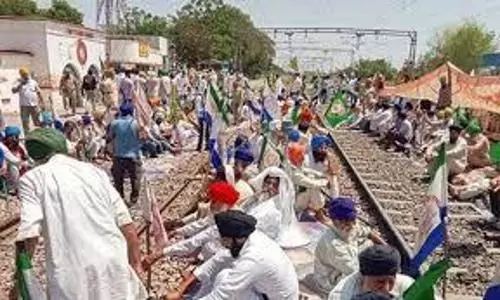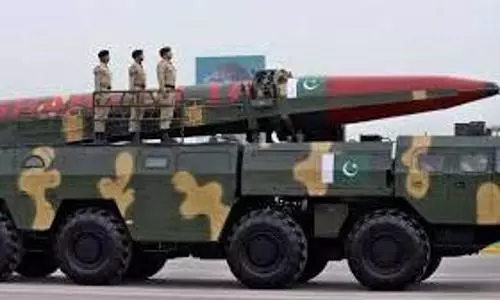
Whither Kerala's police?
text_fields'Which way is Kerala's police heading? The images of the police attacking a man who had participated in the National Highway agitation council in Vadakara to such an extent as to break his genitals, is sufficient to shame every Keralite. Whoever is the minister, during UDF rule, the character of police is the same'.
So read a Facebook post of the current chief minister Pinarayi Vijayan in February 2014. Now, even after he has completed two years in the post of chief minister also handling home portfolio, the question he raised then still remains as much relevant. When the recent conduct of Kerala's police force is bringing disrepute to the entire society of Kerala, that question has to be repeated too: Which way is Kerala's police moving? The incident in which a mother was arrested for leaving her ten ear old girl open for sexual molestation by a pervert, is something that should not be heard on any day, let alone on mother's day. But still more terrifying is the 'liberal' attitude to the culprit of the police, which by its very role is duty bound to take immediate action, but did not take any action for full two weeks in spite of Child Line workers passing the case on 26 April with visuals of the act. It is at the same time when bad news come in about increase in POCSO cases in Kerala, that the State Human Rights Commission's Acting Chairman P Mohandas issued orders for action against the police for trying to protect the culprits who tortured the child.
Kerala is a state which has attained the standards of any developed nation in human development indices. But, if in spite of extensive democratic discourses, racial prejudices and gender mind-sets still remain in the 'good books ' of Kerala police it is because in the matter of law enforcement, the state is still maintaining colonial attitudes. The custodial death of Sreejith of Varapuzha has been bringing to light the depth of extra-legal actions of the police force each passing day. The fact that an officer of SP rank formed a parallel team without administrative approval, and made extra-legal intervention in at least 21 cases, and violated the rights of innocents through misuse of power, does not become huge political storm or democratic debate; this is only because of the popular notion that the cop means some one legally permitted to act illegally in the name of legal steps. And the act of wondering indifferently whether these are not common when popular agitations are brutally handled in daylight on the streets and at midnight in houses, takes its birth from the experience that police is a natural tool of suppression at the hands of the government. It has emerged that half of the cases that come up before the State Human Rights Commission, are against the police. The number of law enforcement officials involved in serious criminal cases is over 1,000. If a count is taken of those who were subjected to disciplinary action for corruption, and abetting the rich and famous through illegal means, this figure may be higher. DGP Lokanath Behra had to admit openly a few days ago that in spite of court directions, the government has not been able to eeradicate the criminalization of police.
Even if we may fall short of realizing the dream of police being friendly with the people, at least the basic feature that the force functions with fairness and justice, has to be achieved. For it is the sense of justice and efficiency that plays the major role in the matter of ensuring people's feeling of security. Keeping the police free from political influence is as important as preventing the force from committing atrocities. The path to be adopted by police is of maintaining justice. The incidents in question are a disgrace to the police force that engages itself in maintenance of justice disregarding political pressures and bullying by superiors. The role of the police union is not only shouting slogans and pleasing political bosses, but leading the police of the state internally to the track of a progressive justice system. And the chief minister, as one handling the home portfolio, has a special obligation to put law and order in the right direction. Unfortunately, no one is bothered about obligations but only about temporary political gains. For that very reason, Kerala's police is traversing the same path in 2018 as it did in 2014.























